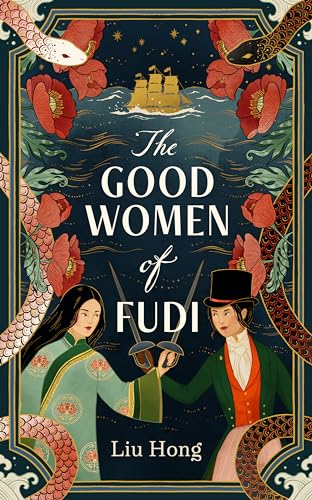The Good Women of Fudi
Aboard ship, en route to the small Chinese town of Fudi, two men strike up a friendship. Charles is an ‘ocean man’ (foreigner), recently bereaved, somewhat critical of his European roots, and looking for a different life. An elegant Japanese man is returning home from studying medicine abroad and eager to see his best friend, a young woman named Jiali. But Jiali has married Yanbu, who, coincidentally, is a colleague of Charles. As Charles’s feelings are marginally stirred by the attractive Japanese man, he discovers he is actually Wu Fang, a Chinese woman. Jiali and Wu Fang, high-spirited, intellectual Hakka women with unbound feet, have been friends since childhood, learning martial arts and sword-fighting, both dressing as men. Both have eschewed marriage until now.
The novel is unique for its characterisations and how Liu Hong carries an intricate story about the fluid paths of attraction as it crosses cultural divides. Her style is refined, thoughtful, and free from judgement. The revolutionary Wu Fang and more traditional Jiali are remarkable characters not confused by their gender in the least. They are genteel ladies who enjoy dressing as men because they can, and who learn to physically protect themselves because it empowers them. The men are, for the most part, equally accepting and in awe of the women.
Reminiscences of Twelfth Night mix-ups and the conventions of medieval courtly love edge their way in. Jiali, a brilliant poet, marries Yanbu because he penned magnificent reciprocating couplets during their courtship, but on their wedding day he does not reply in kind. This calls into question the basis of their love-match. Chinese culture and custom run deeply through Liu Hong’s narrative; the complexity of love contrasted with the complications of following and/or dodging social convention. Drawn against a backdrop of rising political tension towards the end of the Qing Dynasty, I found Liu Hong’s novel a surprisingly moving experience.










